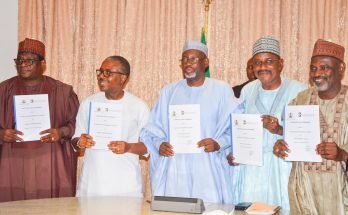Electricity consumers in the country are finding it difficult to cope with the steep increase in energy cost with most private schools and other businesses abandoning the regular supply from distribution companies, otherwise known as DisCos for alternative options like solar energy.
Blueprint Newspapers survey shows that a good number of schools and small and medium businesses are beginning to have a rethink, by adopting survival strategies.
Investigations reveal that, the cost of installing solar energy could appear huge at the first instance, but in the long run appears cheaper to maintain.
For instance, an average price of one solar panel is said to go for about N80,000 and the businesses will require between two to five panels to power their business, depending on its scale.
Another major cost is the battery needed. It comes in various capacities. For instance, a 12 kva battery is said to cost an average of N250,000, while the machines required, which have various capacity could go for as high as N400,000.
Additional cost includes wires and other logistics.
But the bottom line, according to a consultant who simply gave his name as Daniel is that, the businesses will only need to change the battery water once every 6 to 12 months in which case the companies would have rid themselves of epileptic power supply and cut-throat cost.
One of the schools at Gowon Estate in Egbeda axis, Stone Bridge, Blueprint learnt spend N10,000 daily on pre-paid meter. They have opted out of the national grid system.
Also, a bet Naija business centre which almost collapsed due to high cost of DisCos charges have also embraced the solar panel way.
One of the operators who spoke with Blueprint and does not want her name in print said they have peace of mind now.
She recalled when customers would fight them because of an outage of power and no petrol to run the generator to give them winning numbers.
Another report seen by Blueprint notes that the cost of power supply has reached an unprecedented height following substantial tariff increase by the National Electricity Regulatory Commission (NERC) for customers on Band A.
This development has forced many affected customers to devise coping strategies to reduce the cost of electricity for their businesses and homes.
In April, NERC raised the tariff for these consumers from N68 per kilowatt-hour (kWh) to N225/kWh. Although a subsequent reduction in May brought the tariff down to N206.80/kWh, this adjustment has done little to alleviate the financial burden on the affected businesses and households.
Following the worsening epileptic power supply by power Distribution Companies (DisCos) amid recent hike in electricity tariff by the Nigerians Electricity Regulatory Commission (NERC), consumers have expressed frustration, calling on the federal government to license more DisCos to encourage competition and allow consumers to have alternatives.
Blueprint Newspapers spoke with consumers in different parts of Lagos, who unanimously expressed disappointments over the worsening power supply that led to multiple problems in parts of the state.
Badejo Olujimi who lives in Ipaja axis of Alimosho local government area of the state said, while attempting to satisfy the Band A category of consumers DisCos have completely neglected other bands.
“If you know what I mean, the light now behave like a twinkle twinkle little star. It comes one moment, the next two minutes it’s gone.
“I think they are just wicked, particularly with the scorching heat that is so intense. You cannot store anything in your fridge; you cannot pump water, making the already bad situation worse”.
Alex Fodio, a barber, told Blueprint that he has no other option than to increase his charges for cutting men’s hair from N500 to N1,000.
He ‘unluckily’ falls under Band A. “The hike announced was immediate. The recharge card money has tripled, yet power supply has considerably reduced”, he lamented.
Gbenga Ojoko, a retired school teacher at Ikeja, said he used to be the envy of most places in Lagos, but all that has changed.
According to him, “we do not even know which category we belong to. My wife who has a shop can no longer sell cold drinks or sachet water; we have to buy water, because we cannot pump water from our bore hole, making life very difficult for people in the area”.




